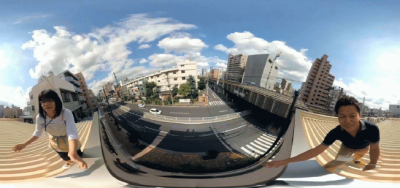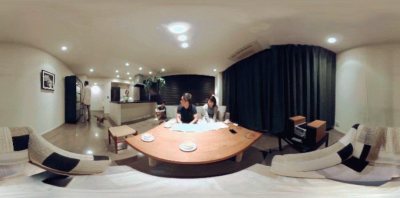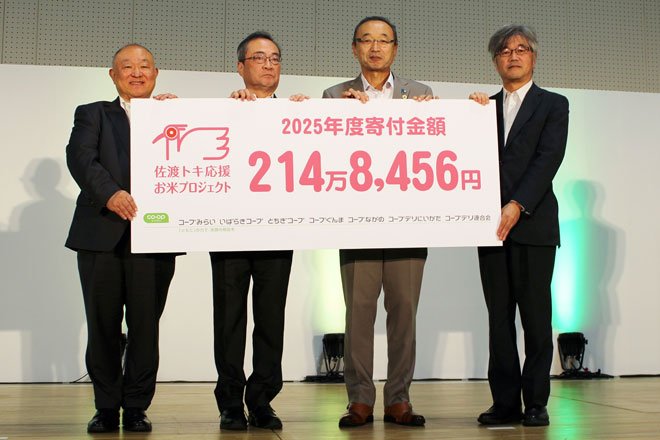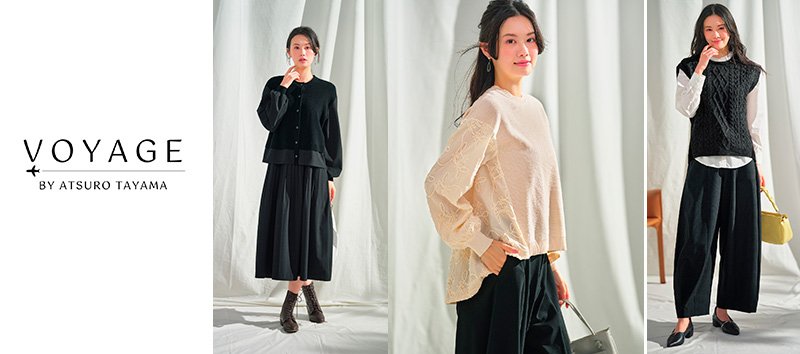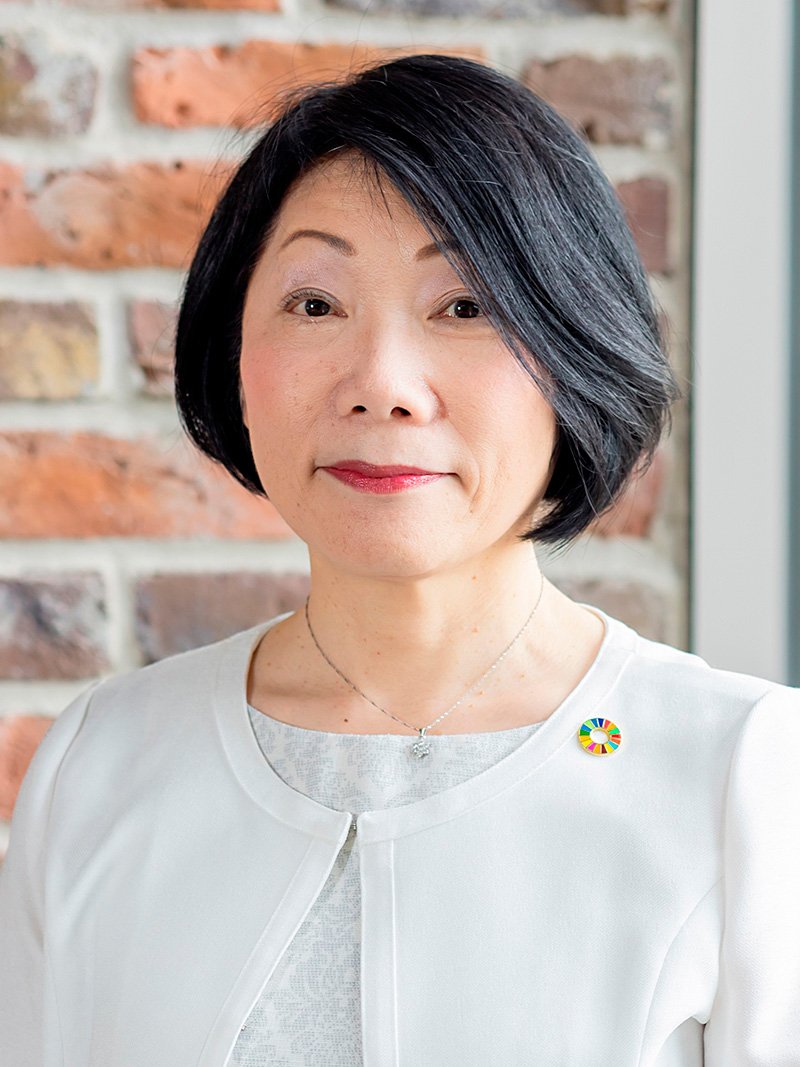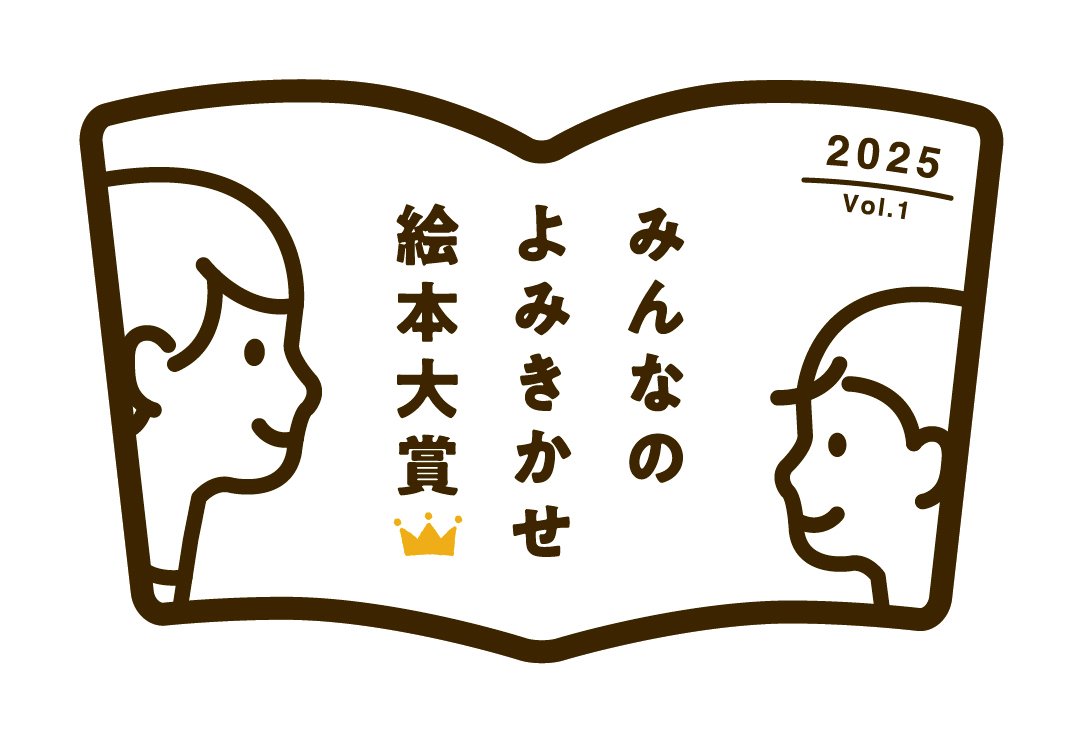Tokyo Consumers' Co-operative Union held Dementia Virtual Reality (VR) Experience Course
2018.12.18
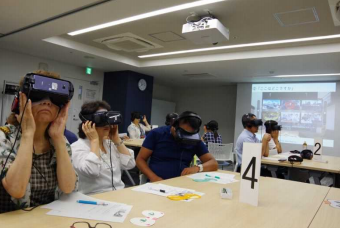
On August 21, 2018, "Dementia Virtual Reality (VR) Experience Course" was held at Tokyo Consumers' Co-operative Union. 50 people including members of the Co-ops in Tokyo and Chiba participated in it.
The purpose of “VR Dementia Project” is not just getting the knowledge about dementia but deepening understanding of dementia patients through simulating the experiences of dementia. The lecturer, Ms. KURODA Maiko from SILVER WOOD-Corporation said “When people have dementia, it becomes difficult for them to express their feeling. On the other hand, they start to act abnormally, e.g., ‘speaking violent words,’ ‘using violence,’ ‘wandering around,’ ‘desire to return home,’and ‘refusing bathing,’ which cannot be understood by their family. These actions tend to be considered to be caused by dementia, but they actually happen because the patients are confused by their living environment or their family members’ or friends’ way to deal with them.”
The participants wrote the image or impression they had about “people with dementia” on a worksheet before experiencing VR dementia. Then they wore VR equipment to experience three stories.
Those three stories were made to let people experience the symptoms of dementia as if they had dementia. For example, one story whose theme is that impaired visuospatial ability makes the equipment bearers think they were forced to stand on the roof top of a building and pushed down from there, but later notice that in fact they only got off a car. Such experiences allow the bearer easily imagine what will happen if they pull the patient’s hand by force when they hurry. And with another story whose theme is Lewy body dementia (LBD), the bearers experience a visual hallucination of a person who appears and disappears or insects staying on a cake to learn that the dementia patients are sometimes hurt when their family members don’t believe what they experienced.
In addition, the participants listened to the messages of dementia patients through VR. The patients said “I feel easy to live after stopping hiding the fact that I have dementia. I think there are many patients who are afraid of being noticed by other people that they have dementia, though most of those other people, as a matter of fact, have no prejudice and only the patients themselves and their family members have it in their own mind. I’m sure the patients can live well peacefully with dementia if they eliminate such a biased view.” It is important to share an interest in dementia if the patient confesses it, and the patient shouldn’t be denied by saying ‘Don’t tell me such a weird thing.’
Afterwards, the participants rechecked the worksheet they had filled in at the beginning of the event and then exchanged their impressions.
It is said that over 13 million people in Japan are likely to have dementia by 2025 and furthermore, half of the Japanese population including the patients’ family will be involved in dementia related matters. As a result, this course was a good learning opportunity for the participants.

